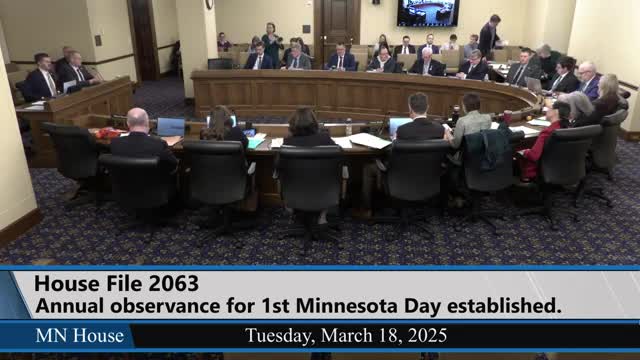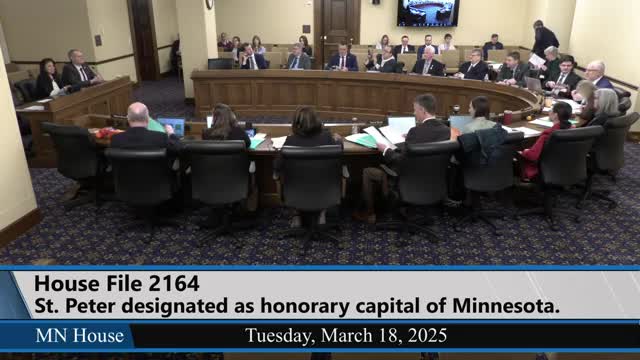Article not found
This article is no longer available. But don't worry—we've gathered other articles that discuss the same topic.

Committee hears proposal to designate July 2 as First Minnesota Day and fly replica flag at state capitol

Committee adopts oral amendment and lays over state contracting bill clarifying prohibited contract terms and subcontracting goals

Committee lays over bill to name St. Peter honorary state capital; backers cite tourism and local history

Committee hears testimony on funding increase for Minnesota public television; House File 1377 laid over

